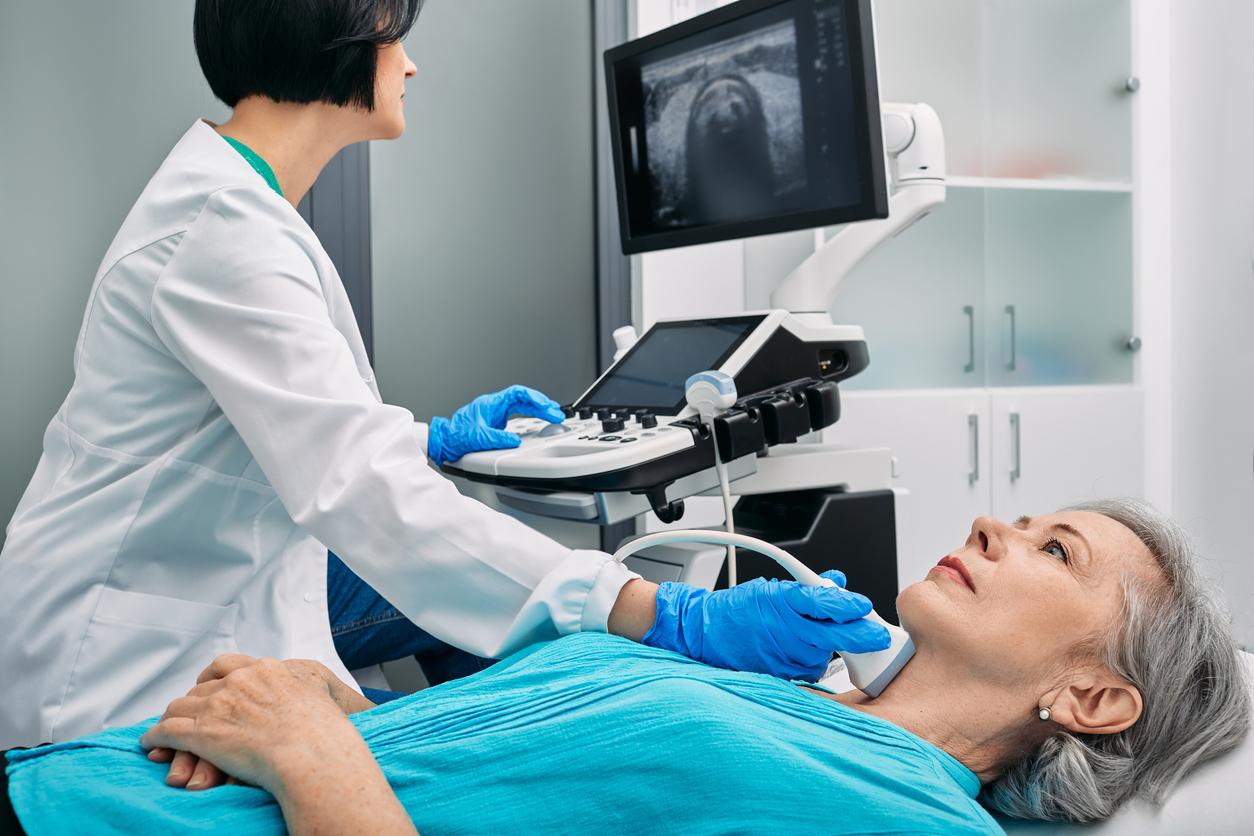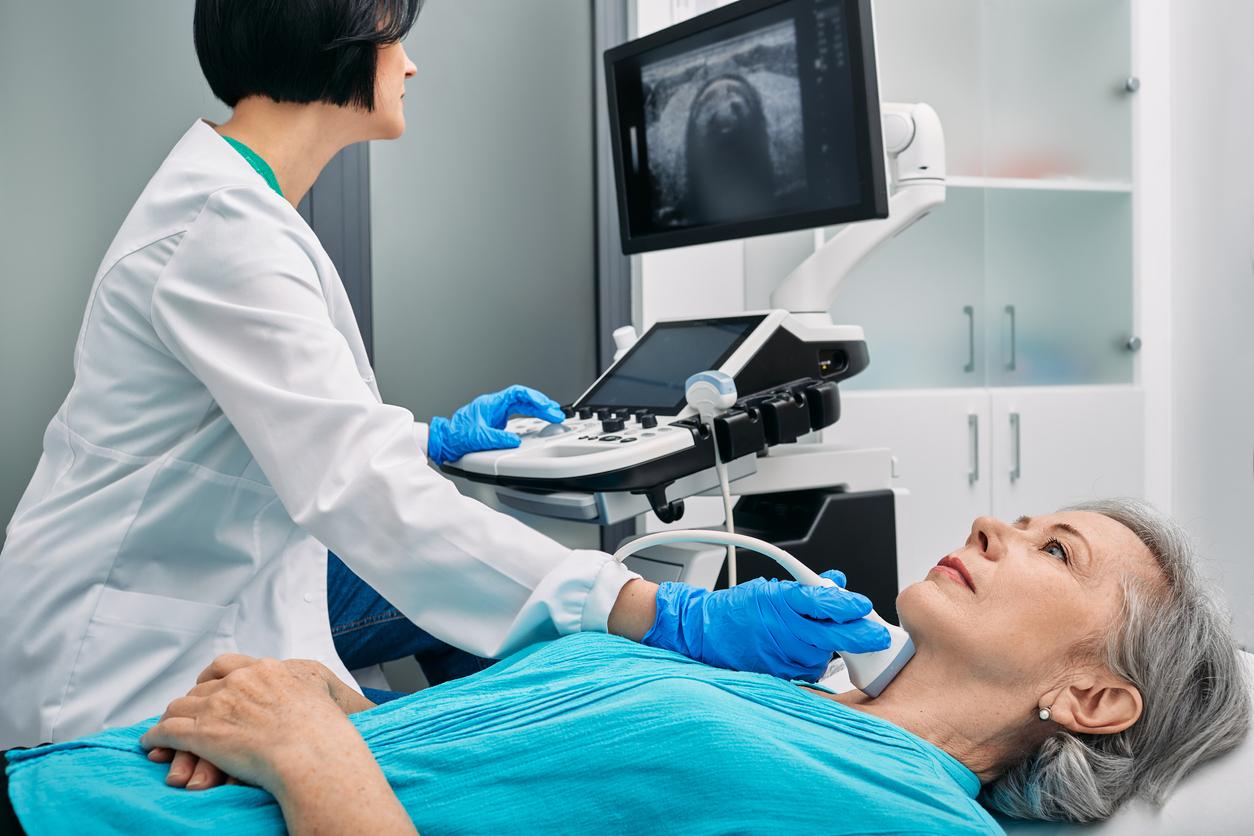During hormone replacement of hypothyroidism, there is a risk of atrial fibrillation if the given dose brings the level of thyroid hormone to the upper limit of normal in the blood.

For patients with hypothyroidism, taking somewhat high doses of thyroid hormone (levothyroxine), and bringing thyroid hormone levels in the blood to the “high limit” may increase the risk of fibrillation. auricular, a heart rhythm disorder that exposes you to cerebrovascular accidents (CVA). This emerges from a study covering more than 174,000 patients and presented at the annual meeting of the American Heart Association (AHA), in Chicago.
In addition, the dosage of free Thyroxine (FT4) in the blood seems more relevant than the dosage of TSH for monitoring this hormonal supplementation in order to avoid the risk of atrial fibrillation. A useful element to understand the Levothyrox affair in France.
Hypothyroidism and risk of atrial fibrillation
“We know that patients with hypothyroidism have a higher risk of atrial fibrillation, but we had not considered an increase in this risk when supplementing with thyroid hormones according to recommendations and with hormone levels at within the range of normal values,” said the study’s lead author, Dr. Jeffrey Anderson, a physician and researcher from the Heart Institute at Intermountain Medical Center. “These results show that we could reconsider the limits of what we call normal free-thyroxine values.”
A confirmatory study
In this study, researchers reviewed the electronic medical records of 174,914 patients treated at Intermountain Healthcare facilities, whose free-thyroxine levels were recorded, and who were on thyroid supplementation.
During supplementation, the researchers then divided the normal range of free-Thyroxine levels in the blood, and they divided it into four quartiles, then reviewed the records of these patients for a current or future diagnosis of fibrillation. auricular.
40% increased risk
They found a 40% increase in existing atrial fibrillation in patients in the highest quartile of free-thyroxine levels compared to patients in the lowest quartile, and a 16% increase in the development of atrial fibrillation over the course of three years of follow-up.
That is to say, patients who had the highest free-thyroxine values in the blood, while having values that remain within normal limits, have an increased risk of arrhythmia. These results suggest that the range of normal free-thyroxine levels in the blood should be redefined.
According to Dr. Anderson, these levels at the upper limit of normal could have a silly explanation: “Thyroid hormones are associated with weight loss and increased energy expenditure, which can lead people to process to the maximum of normal”.
Thyroxine-free better than TSH
A new element in view of the current problems with Levothyrox in France, the study also shows that it is better to measure the level of free Thyroxine, at the same time as that of thyroid stimulating hormone (TSH), because the latter, if it is useful in patients who have irregular thyroid hormone levels, is of no benefit in the normal risk range. This confirms the results of another study.
The closer link between free-thyroxine and atrial fibrillation was recently recognized in the Rotterdam Study, a real-world population-based cohort study that began in 1990. This new study by researchers at Intermountain Medical Center Heart Institute confirms, on a larger scale, the link between the normal-high level of free Thyroxine and the risk of atrial fibrillation in patients supplemented with thyroid hormones.
The next step will be to conduct a controlled trial to determine whether, when supplementing hypothyroidism, targeting a lower Free Thyroxine range reduces the risk of atrial fibrillation and stroke, as well as other heart problems.

.















